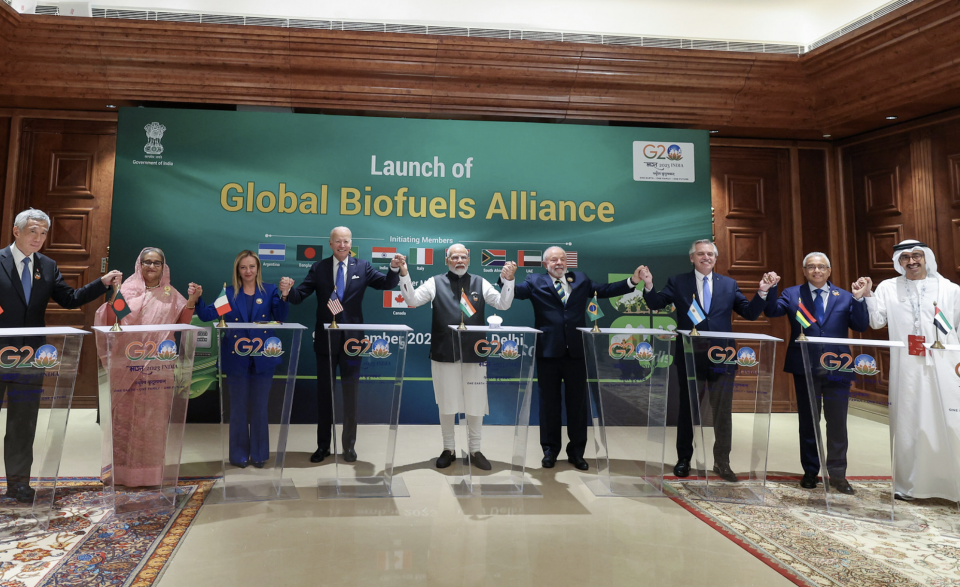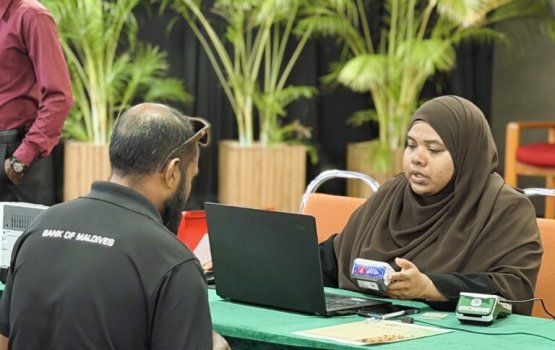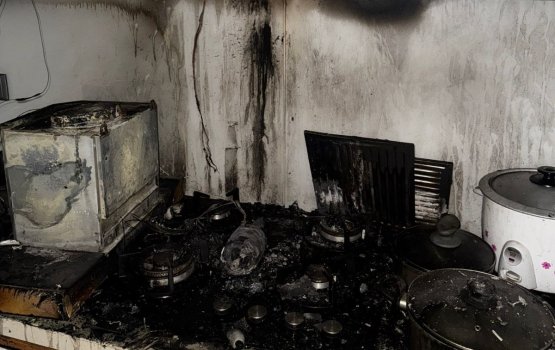Prime Minister Shri Narendra Modi along with the leaders of Singapore, Bangladesh, Italy, USA, Brazil, Argentina, Mauritius and UAE, launched the Global Biofuel Alliance (GBA) on 9 September 2023, on the sidelines of the G20 Summit in New Delhi. The GBA, is one of the priorities under India’s G20 Presidency, where PM Modi urged G20 and other nations to join the initiative, with a plea to take ethanol blending with petrol, globally to 20%. Initially, 19 countries and 12 international organisations joined the initiative, including the World Bank, the ADB and the WEF. Subsequently, with the addition of the Philippines and Tanzaniathe Alliance now has 21 countries as members.
The GBA intends to expedite the global uptake of biofuels through facilitating technology advancements, intensifying utilization of sustainable biofuels, shaping robust standard setting and certification through the participation of a wide spectrum of stakeholders. The alliance will also act as a central repository of knowledge and an expert hub. GBA aims to serve as a catalytic platform, fostering global collaboration for the advancement and widespread adoption of biofuels.
India and the US have a strong bilateral partnership in the energy sector since 2005. In April 2021 an India-U.S. Climate and Clean Energy Agenda 2030 Partnership was launched, with two tracks i.e. Strategic Clean Energy Partnership (SCEP); and Climate Action and Finance Mobilization Dialogue (CAFMD). SCEP focusses on government, industry and other stakeholder efforts to advance energy security, clean energy innovation and decarbonization efforts to support the bilateral and global energy transition while ensuring clean energy access. The Joint Statement issued on July 18, 2003 after the third Ministerial Meeting of the SCEP between the Indian Minister of Petroleum & Natural Gas and the US Energy Secretary, states that the, “The Ministers affirmed the vision of President Biden and Prime Minister Modi for establishing the Global Biofuel Alliance.”
Earlier on February 11, 2023 a press note of the Ministry of Petroleum & Natural Gas stated that Brazil, India, and the United States, as leading biofuel producers and consumers, will work together during the next few months towards the development of a Global Biofuel Alliance along with other interested countries. This Alliance will be aimed at facilitating cooperation and intensifying the use of sustainable biofuels, including in the transportation sector. It will place emphasis on strengthening markets, facilitating global biofuels trade, development of concrete policy lesson-sharing and provision of technical support for national biofuels programs worldwide. It will also emphasize the already implemented best practices and success cases. The GBA will work in collaboration with and complement the relevant existing regional and international agencies as well as initiatives in the bioenergy, bioeconomy, and energy transition fields more broadly, including the Clean Energy Ministerial Biofuture Platform, the Mission Innovation Bioenergy initiatives, and the Global Bioenergy Partnership.
Unlike other renewal energy sources, biomass can be directly converted into liquid and gaseous fuel, most common of which are ethanol for blending with petrol and biodiesel for blending with diesel. Biofuel sources are mainly crop residue, animal waste, residue from cooking oils, and non-food biomass.
India is now the world’s third largest producer and user of ethanol, thanks to nearly tripling production in the past 5 years. It has already achieved 10% blending of ethanol with petrol and aims to reach 20% by 2025-26. India imports 85% of its oil needs. The transportation sector contributes to significant chunks of emissions. In order to meet its target of net-zero emissions by 2070, India has embarked vigorously on replacing a significant portion of its fossil fuel consumption with biofuels. Though not absolutely emission free, biofuels have a lower emissions intensity than fossil fuels. Blending of biodiesel with diesel has been mandated from April 1, 2023. 100 such plants are expected to come onstream across the country with an investment of about Rs. 2000 crore. The potential for biofuels in India is about one billion tonnes, with feedstock of only a miniscule portion coming from domestic crops, about 25-30% from agricultural residue and the major portion from other residues.
Global climate factor is propelling people, investments and projects into this sector. Government of India’s push for net-zero emissions and its biofuel initiatives, including with its international partners have ensured that funds and technology are flowing into this sector, such as the NEEV Fund, a joint venture between the State Bank of India and the UK Government.GBA is also expected to provide additional opportunities to Indian industries in the form of exporting technology and equipment, generating employment and skill development.
The International Energy Agency (IEA), of which, India is an association country, has put its weight behind GBA. Globally the production and use of biofuels, which contributes significantly towards net zero emission goals, is not progressing as rapidly as it should. IEA is of the view that sustainable biofuel production needs to triple by 2030 to help reduce emissions from new and existing trucks, planes, ships and passenger vehicles that have few other mitigation options. Brazil, India and the US showcase policies that have driven considerable growth in supply. As these three countries are the prime movers behind the establishment of the GBA, the IEA expects the Alliance to accelerate the deployment of secure and affordable biofuels globally.
India recognised the significance of biofuels in mitigating carbon emissions, particularly in the transportation sector, and adopted policies and practices early to give a concrete boost to the production and use of biofuels particularly ethanol and biodiesel. However, India also realises that climate change mitigation cannot be successful unless adopted on a global scale. Hence, India took the initiative, in consultation with countries and organizations having a similar outlook, like the USA and IEA, to concretise the idea of a forum to drive the greater production and use of biofuels, which culminated in the launch of the Global Biofuel Alliance at the G20 Summit in New Delhi last year.








